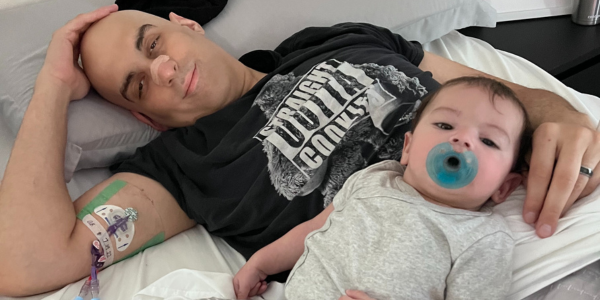REMOVING BARRIERS TO TREATMENT: Nour’s Story
Tinley Park, IL
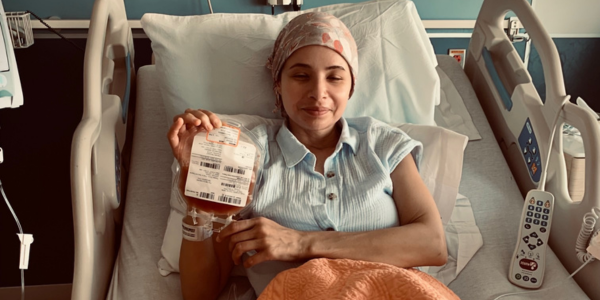
The doctor asked her to immediately call her family. Nour was being hospitalized that day to treat a rare blood cancer, b-cell acute lymphoblastic leukemia.
Weeks earlier she was feeling fatigued, often dizzy and breathless. When bruises appeared for no reason, she made an appointment to see her doctor. Now she had to call her boss while crying to explain why she could no longer fulfill her work commitment.
The Difficult Journey Ahead
She was to begin a long and difficult journey – weeks turned into months of chemotherapy, transfusions, and radiation in preparation to receive a bone marrow transplant. During this time, she did her best to manage the side effects including nausea, weight loss, depression, anxiety, and of course fear of the outcome.
What would happen?
 Nour comes from a loving family and has always cherished time with her young nieces and nephews. Her name Nour means “sunlight.” She has always been a source of light to those around her, but especially for the smallest members of her family.
Nour comes from a loving family and has always cherished time with her young nieces and nephews. Her name Nour means “sunlight.” She has always been a source of light to those around her, but especially for the smallest members of her family.
Although she was in pain, and terribly thin from illness, she couldn’t stay away from the little ones. But she didn’t want them to see her sick.
So at 88 lbs, she would don her favorite wig, apply some lip liner, and put on a happy face to be with them.
They were a source of hope.
Nour explains that hope was a major factor in her recovery. Even though she was surrounded by family, she still had the feeling of being alone. No one really knew the entirety of what she was dealing with. Many patients are uncomfortable expressing their fears with loved ones.
Her medical treatment, especially over a prolonged period, led to many unexpected costs. Nour was not able to work during many months and her savings quickly depleted. She explains, “Experiencing financial struggles is very overwhelming. It caused me so much stress and anxiety.”
LifeSaving Support
Nour is very grateful to the Icla da Silva Foundation for rushing to provide financial and emotional support during an extremely difficult time. In addition to the assurance that she wasn’t facing this battle alone, we helped fund co-pays, transportation, and groceries while she fought for her life.
“Receiving your grant brought me relief and restored my hope. I felt like I had a community with me. Thank you again for everything you and your program do to help people going through this dark time.”
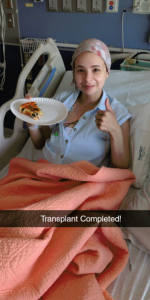 Nour received her bone marrow transplant and we wish her a full recovery. We hope she continues to bring light to everyone around her.
Nour received her bone marrow transplant and we wish her a full recovery. We hope she continues to bring light to everyone around her.
You can make a real difference as someone battles for life. A bone marrow transplant is a long and difficult journey. It brings a host of expenses that aren’t covered by most medical insurance.
Please donate today and help a patient like Nour access a life-saving transplant. You will remove barriers for a patient in their darkest time.
Written by: Bret Itskowitch
Helping a New Father Fight Blood Cancer
REMOVING BARRIERS TO TREATMENT: Haitham’s Story
Palatine, IL
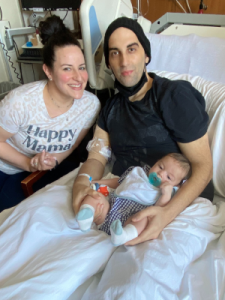 Recently, Haitham’s world overflowed with joy. He and his wife Nicole welcomed their first child, a beautiful baby boy.
Recently, Haitham’s world overflowed with joy. He and his wife Nicole welcomed their first child, a beautiful baby boy.
Two months later, their excitement was shattered by devastating news.
A Life-Threatening Diagnosis
Haitham just wasn’t feeling right. He was struggling with fatigue and joint pain for months. Red spots suddenly appeared on his body. His wife is a Dental Hygienist; when she noticed that his gums were swollen and bleeding, she demanded he visit urgent care to get blood work.
The blood tests revealed crushing news, this new father was diagnosed with acute myeloid leukemia (AML). He was recommended to receive a bone marrow transplant.
A Grueling Financial Burden
With a newborn baby at home, the physical, emotional, and financial burden of blood cancer felt insurmountable.
Haitham had not been able to work since his diagnosis. He could barely stand from the fatigue. His wife Nicole was ready to return to work following maternity leave. But now with the transplant coming, she had to switch to a part-time schedule to be his caregiver.
“Things were very difficult for me and my wife,” Haitham recalls. Just as they were on the brink of losing their home and car, a social worker at Northwestern Memorial Hospital, connected them with the Icla da Silva Foundation.
Giving Him A Fighting Chance
Through the Icla Cares program, we provided funds to ensure they could afford housing and transportation while he underwent a bone marrow transplant.
Thanks to our donors, we provided support at a critical moment in their battle against blood cancer. The grant helped keep a roof over their head and maintain their only vehicle while he was in treatment. “It gave me peace of mind,” Haitham says, “knowing we wouldn’t lose everything.”
The transplant was successful. Haitham is currently in remission and slowly recovering.
He is not yet able to return to work, but he is strong enough to care for their son while his wife is at work. We wish him a full recovery and many cherished years with their baby boy.
You Can Help
The Icla da Silva Foundation offers support and hope for a family in their battle against blood cancer. For a patient in financial crisis, we provide grants for meals, transportation, and housing while they are in treatment to receive a bone marrow transplant.
Your support empowers a patient like Haitham to focus on healing. Your donation will ensure a family has the resources they need to fight a life-threatening battle.
Please donate today.
Written by: Bret Itskowitch
Supporting a Teenager on his Journey to a Bone Marrow TransplantREMOVING BARRIERS: Jake’s Story
Columbia Station, Ohio
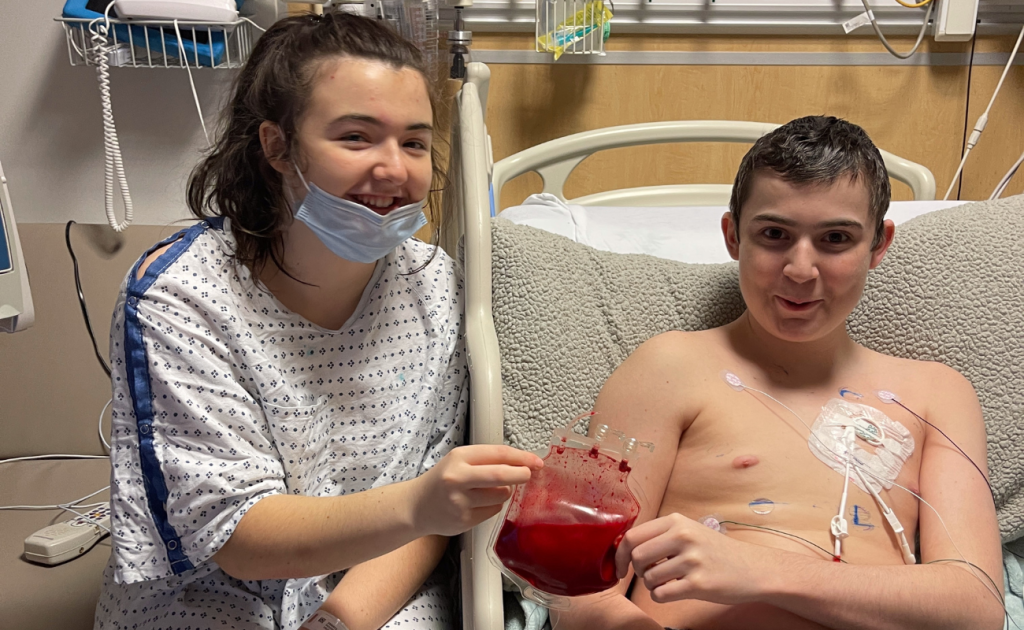
Meet Jake and his sister Bella.
Jake is a brave boy who fought a difficult journey with acute myeloid leukemia (AML). After being diagnosed with this aggressive form of blood cancer, he received treatment and went into remission. But then he relapsed and urgently needed a bone marrow transplant.
Luckily, his younger sister Bella was a matching donor, and Jake received a transplant.
Throughout treatment, Jake and his family faced many hardships. These included the financial strain of his mom having to stop working, and the need to stay at a Ronald McDonald house to be close to the hospital.
During recovery, Jake experienced painful mucositis that made it hard for him to eat.
Thanks to the IclaCares program, Jake and his family received much-needed assistance with meals and groceries. Your support helped reduce some of the stress and allowed them to focus on Jake’s recovery.
Join Icla Cares by Supporting Patients and Their Families
 Jake is still in recovery.
Jake is still in recovery.
He just celebrated his 16th birthday. We wish him many healthy, Happy Birthdays in the years ahead.
You can make a difference in the life of a patient like Jake by making a donation.
Your gift provides critical assistance, including meal support during treatment. Help us continue to provide comfort and support to a patient on their journey to receive a bone marrow transplant.
Thank you.
Written by: Bret Itskowitch
Farm Workers Travel 200 Miles for Their Daughters TreatmentREMOVING BARRIERS – ELLY’S STORY
Durham, California
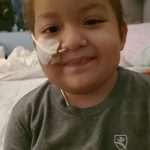 Elly Moreno-Preciosa is a 6-year-old girl recently diagnosed with Severe Aplastic Anemia. Her only cure was a bone marrow transplant.
Elly Moreno-Preciosa is a 6-year-old girl recently diagnosed with Severe Aplastic Anemia. Her only cure was a bone marrow transplant.
Fortunately for Elly, her 11-year-old brother was identified as a matching donor. She received her transplant on June 1, 2022.
Both of her parents are hard-working agricultural workers in Northern CA. They live 200 miles from the Lucile Packard Children’s Hospital, Stanford, which performed the transplant and is continuing treatment until Elly’s immune system is functioning properly.
The Family’s Challenges
Since Elly’s brother was identified as her donor, both parents had to stop working for several months to be individual caregivers for their children. COVID policies do not allow siblings at bedside. Her mother took care of Elly, while her father took care of their son.
Obviously, this had an impact on the family’s limited financial resources.
After the transplant, Elly’s father and brother returned home to work and attend school. But Elly and her Mom remained in the hospital due to complications.
Even after she is released, Elly will require follow-up visits for the next 6-12 months.
That’s a 400-mile round trip.
Undue Stress
Obviously, being diagnosed with a life-threatening disease is distressing. When children are involved, worry and fear impact the entire family. The outlook is unknown.
Patient families are concerned about paying the bills while they are unable to work. In Elly’s case, they are also worried about transportation while half of the family is living 200 miles away for continued treatment.
Individually, each of these barriers can be intense. Combined, they can be extremely overwhelming.
Removing Barriers
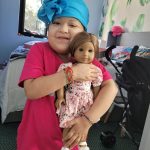 The Icla da Silva Foundation removes barriers for patients who require a bone marrow or cord blood transplant. We provide emotional, logistical, and financial support during transplant and treatment.
The Icla da Silva Foundation removes barriers for patients who require a bone marrow or cord blood transplant. We provide emotional, logistical, and financial support during transplant and treatment.
Thanks to the generosity of our donors, we were able to help Elly’s family with a small grant for rent, transportation, and meals.
Elly is doing well. Her dad and brother travel 400 miles every weekend so the family can be together.
We look forward to learning when everyone is back home. We hope the best for Elly and her family.
Please consider making a donation that will remove barriers for patient families like Elly’s.
With your help, we will continue to make a difference for patients in need of a bone marrow or cord blood transplant.
Written by: Bret Itskowitch
She Passed Out in the ERREMOVING BARRIERS – LANEATER’S STORY
Longview, Texas
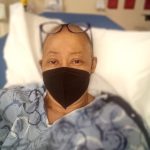 Laneater Johnson was working from home; she didn’t feel well all morning. On her first break of the day, she had chills that made her shake uncontrollably. She realized she had a fever, so she took some Tylenol and decided it was best to go to the emergency room.
Laneater Johnson was working from home; she didn’t feel well all morning. On her first break of the day, she had chills that made her shake uncontrollably. She realized she had a fever, so she took some Tylenol and decided it was best to go to the emergency room.
She knew something wasn’t right; maybe it was a urinary tract infection.
After the triage assessment they give you when you visit the ER, they sent her to the waiting room to wait for a doctor, but she passed out.
Laneater was rushed to undergo all kinds of tests. They didn’t know what was wrong. She was right about having an infection, her body was septic. When the results came back, she was diagnosed with AML (acute myeloid leukemia).
She was immediately transported to Medical City Dallas to undergo 45 days of intense chemotherapy treatment.
A Long Process
She went through a long process that included many inpatient visits for continued tests and chemotherapy. Those treatments went on for about a year before they determined that she needed a bone marrow transplant.
 There were no matching donors for her on the national registry, so they tested her siblings and her children.
There were no matching donors for her on the national registry, so they tested her siblings and her children.
Everyone in the family was a half-match, but her youngest daughter represented the best possible match.
In June 2022, Laneater received a blood stem cell transplant from her daughter.
Removing Barriers
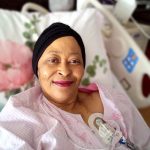 Laneater was not able to work since that very first visit to the emergency room. Even after finally receiving her bone marrow transplant, she still couldn’t return home.
Laneater was not able to work since that very first visit to the emergency room. Even after finally receiving her bone marrow transplant, she still couldn’t return home.
Since she lived more than 50 miles from the transplant center, she was required to stay nearby for continued monitoring until the hematologist released her.
Fortunately, she was released soon after.
The Icla da Silva Foundation supports patients undergoing a bone marrow or cord blood transplant. Our Icla Cares program removes barriers to treatment with emotional, logistical, and financial assistance during treatment.
Thanks to the generosity of our supporters, we were able to help Laneater with a small grant to offset lodging expenses while receiving follow-up treatment at Medical City Dallas. Her stay was shorter than expected, but that didn’t stop Laneater from showing how grateful she was to receive assistance.
“This support came when I was in dire need, I didn’t know where I was going to get the rest of the money.”
It has been a long journey, but her doctors say she is doing well. Laneater looks great, and she smiles as she tells us that she can’t wait for her hair to grow back.
Watch Laneater share her story
We have high hopes for her continued recovery.
Please consider supporting the mission of the Icla da Silva Foundation. Your donation will help more patients like Laneater. Your gift will support bone marrow patients with critical needs.
Together we will continue to make a difference.
Written by: Bret Itskowitch
How does a Single Mother with Life-Threatening Cancer Keep it Together?
REMOVING BARRIERS – KRISTINA’S STORY
Burlington, Vermont
Late last year, Kristina did not feel well. All of her energy was gone. She told us that instead of falling asleep at night, she would just pass out.
Something wasn’t right.
She had a consistent, low-grade fever. With the ever-present fear of covid that we all live with, she kept taking covid tests; but they were all negative.
Kristina is a breast cancer survivor. Having lived through that experience, she knew something was wrong.
Unhappy with the medical care that she was receiving, she made an appointment to see a new primary care physician. That doctor immediately scheduled blood work.
While driving home, Kristina received a call from her new doctor.
She was asked to pull over. Her white blood cell count was through the roof. No one understood how she had the strength to stand up, let alone drive. She insisted that she was just minutes from home.
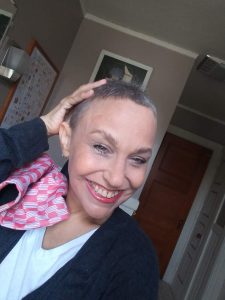 An ambulance was urgently directed to bring her to the hospital. Fifteen minutes after arriving at the hospital, she was diagnosed with blood cancer (acute myeloid leukemia).
An ambulance was urgently directed to bring her to the hospital. Fifteen minutes after arriving at the hospital, she was diagnosed with blood cancer (acute myeloid leukemia).
After months of chemotherapy, Kristina received her bone marrow transplant.
The transplant was successful, but her follow-up visits will continue for many months.
Kristina has been unable to work since her diagnosis. She is not expected to return to work until April of next year. As a single mom, she is doing the best she can to care for her two boys.
We Are Glad That She Found Us
The Icla da Silva Foundation provides emotional, logistical, and financial support to patients who require a bone marrow transplant.
Kristina lived out of state from the nearest transplant center. Thanks to the generosity of our donors, we were able to help Kristina travel back and forth to receive treatment. We also provided her family with a small grant to essentially keep the lights on during treatment.
These small grants, in addition to emotional support, helped Kristina get back on her feet.
Watch Kristina tell her story. Her heartfelt emotion is powerful as she shares how the Icla da Silva Foundation removed some of her barriers and supported her recovery.
Kristina has had a long journey, and it isn’t over yet, but we look forward to her recovery.
Please consider donating to support the mission of the Icla da Silva Foundation. Your gift will help us continue to remove barriers for patients like Kristina.
As a 501(c)(3) all donations are tax-deductible to the fullest amount allowed by tax law.
Thanks for reading.
Written by: Bret Itskowitch
Removing Barriers – Nicole Perkins is Filled With GratitudeBrockton, Massachusetts
Although she has suffered a blood disorder for 13 years, which resulted in cancer, Nicole is a fighter. Her heart is filled with gratitude for the assistance she has received.
Nicole Perkins was diagnosed with a blood disorder in 2009. For years, she kept regular appointments at the Dana Farber Cancer Institute to have her blood checked.
Everything Seemed to Be Fine
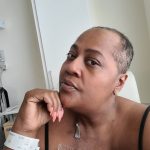 Until she was diagnosed with Multiple Myeloma. Nicole also developed a rare disease called Amyloidosis. Both of these conditions are the result of abnormalities in the plasma cells of bone marrow.
Until she was diagnosed with Multiple Myeloma. Nicole also developed a rare disease called Amyloidosis. Both of these conditions are the result of abnormalities in the plasma cells of bone marrow.
Nicole is a hard-working, single mother of three. She never expected to face a life-threatening diagnosis. She also never assumed that she would be unable to work.
She was immediately sent to receive chemotherapy. Her treatments continued every week for 7 months. As expected, chemotherapy takes a lot out of you.
Received Her Blood Stem Cell Transplant
 Fortunately, Nicole received her blood stem cell transplant in July of this year.
Fortunately, Nicole received her blood stem cell transplant in July of this year.
Her journey is far from over, but she has faith and will continue to fight.
The Icla da Silva Foundation Helped Nicole on Her Journey
Nobody expects to receive a rare, life-threatening diagnosis that requires a bone marrow transplant. Fewer still appreciate the challenges that are associated with treatment and transplant.
Why We Help
Managing a rare disease while also maintaining a home and raising a family is a difficult task to accomplish. This is why the Icla da Silva Foundation helps bone marrow or cord blood transplant patients with emotional, logistical, and financial support during their journey.
Our goal is to remove barriers. We help patients manage unexpected challenges so they can focus on their treatment.
Watch Nicole share her story.
Please consider a donation that will support more patients and their families who are going through their journey to receive a bone marrow or cord blood transplant.
Together we will make a difference.
Written by: Bret Itskowitch
Finding a Cure for ValeryRemoving barriers so a little girl can receive her life-saving treatment.
Valery Hernandez is a 9-year-old girl from the Dominican Republic. She was diagnosed with acute lymphoblastic leukemia in 2019. After two years of chemotherapy at the Instituto de Oncologia in the Dominican Republic, her cancer finally went into remission.
But the leukemia was so aggressive that it returned after only five months.
While a bone marrow transplant was her only option, the hospital in DR does not perform pediatric bone marrow transplants.
The medical team there referred her to the Icla da Silva Foundation.
We helped identify a transplant center in the U.S., Nemours Children’s Health, for her bone marrow transplant. After reviewing her case, a study for CAR T-cell therapy was identified at the National Institute of Health (NIH).
A team of doctors were interested in Valery’s case for a clinical trial.
What is CAR T-Cell Therapy?
CAR T-cell therapy is a treatment in which a patient’s T cells (a type of immune system cell) are changed in the laboratory so they attack cancer cells. T cells are taken from a patient’s blood. The gene for a special receptor, which binds to a specific protein on the patient’s cancer cells, is added to the T cells in the laboratory. This receptor is called a chimeric antigen receptor (CAR). A large number of these CAR T-cells are grown in the laboratory and given to the patient by infusion.
CAR T-cell therapies, and other antibody-based therapies, are used to target surface proteins found on leukemia cells. The goal is to improve outcomes for patients with blood cancers that do not respond to chemotherapy.
Removing Barriers
The family cried with joy after learning about the clinical trial.
CAR T-cell therapy, followed by a bone marrow transplant, was the best opportunity for long-term survival.
There were many barriers we helped remove in order to give Valery her chance at survival:
- Identify a Transplant Center in the U.S. for her bone marrow transplant
- Petition to get her accepted for the clinical trial at NIH in Bethesda, MD
- Support her application for a temporary humanitarian visa
- Arrange accommodations at NIH
- Arrange travel for the donor to transplant her blood stem cells
The first phase of the treatment, the CAR T-Cell therapy, was a success.
The Next Phase
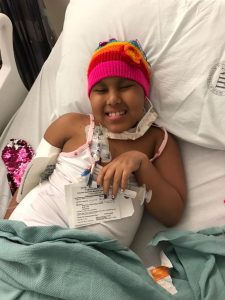 Valery is doing great! She has been transferred to Nemours Children’s Health for her bone marrow transplant, which will happen in a few weeks.
Valery is doing great! She has been transferred to Nemours Children’s Health for her bone marrow transplant, which will happen in a few weeks.
The Foundation assisted with the arrival of her donor, Valery’s younger sister.
She is a perfect match.
We have been in constant contact with the family and continue to support them with logistical and emotional needs on their journey to a cure.
We are grateful for the amazing medical teams that are caring for Valery and her family.
Please consider making a donation and help us remove barriers for more patients like Valery.
Written by: Bret Itskowitch
Taking On a Life-Threatening Journey with ConfidenceHow A Single Mother Keeps Hope Alive
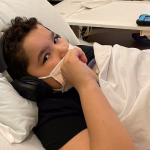 Samuel is an 11-year-old boy from Astoria, in Queens, New York. He loves to read and play video games.
Samuel is an 11-year-old boy from Astoria, in Queens, New York. He loves to read and play video games.
Since birth, Samuel has lived with a low platelet count.
Low platelets are caused by a genetic mutation. A low count is less than 150,000 platelets per microliter. Sammy’s count has usually been around 90,000.
In April 2020, Sammy was tired and suffered from a fever. His mom Alessandra was nervous. She was concerned about covid, so she brought him to the hospital. They diagnosed strep throat and prescribed antibiotics. She thought that was a good thing.
But he didn’t get better.
His pediatrician diagnosed mononucleosis and prescribed another antibiotic. It didn’t help.
Sammy’s platelet count had gone down to 25,000.
A Mothers Healthcare Journey Begins
Alessandra took Sammy to five different hospitals in New York City, Washington DC, and Boston. They were all large and well respected. She even called her personal doctor in Brazil.
They continued to discover abnormalities in his blood, but the findings were not conclusive. Bone marrow failure was suggested as the diagnosis.
Alessandra wasn’t sure what her next step should be.
She is a strong, intelligent, and confident woman. A single mother to two boys. She would not give up. She kept asking for more information, another opinion.
The doctors have recommended a bone marrow transplant.
Searching for a Donor
Alessandra’s next step is to find a matching donor for her son. Since both she and her older son have the recessive gene, they cannot donate their blood stem cells.
The doctors have searched the national registry, but there is no match for Sammy.
Not yet.
Because of his Brazilian heritage, the chances of finding a matching donor are low. There are simply fewer registered donors who would potentially match Samuel.
The Icla da Silva Foundation
Alessandra remembered the Icla da Silva Foundation as an organization that helps to remove barriers for patients who need a bone marrow or cord blood transplant. She learned about the foundation many years ago when a representative spoke at her church in Queens.
Alessandra contacted Airam at the Foundation. He listened to her story, understood her challenges, and answered her questions. He recommended some strategies to add potential donors and introduced her to the team at Be the Match.
We helped remove the initial barriers that every patient goes through, by providing information about the process, and orientation towards a life-saving solution. The goal is to explain the challenges while reinvigorating hope.
Their search for a matching donor began over the July 4th weekend.
Alessandra is very hopeful, “tell me what you need me to do. Should I post on social media, meet with the local press, talk to community leaders?”
We answered her with, “yes, yes, and definitely yes.”
Our mission is to remove barriers to treatment for patients who require a life-saving bone marrow transplant. We are helping Alessandra and her son with their search for a potential donor.
We are spreading the word and hoping a match will be found soon. A volunteer group is being formed through the Icla da Silva Foundation to expand support for Alessandra and Sammy in their search for a donor.
How is Samuel?
Last week, Sammy’s platelet count was 14,000. He is tired, and he has difficulty going up a flight of stairs. He bruises easily. Alessandra tells us, “it’s obvious when his platelets get low, he gets petechiae.” These are red marks on his body, which means he is bleeding into his skin.
Alessandra remains strong, “we will get through this, we will find a solution.”
To JOIN THE REGISTRY you need to be between the ages of 18-40, in good health, and willing to donate to any patient in need. Click the link below or text: Swab4Sammy to: 61474 and request a swab kit be mailed to your home.
If you have already joined the registry and want to help firther, please click the Volunteer button below and register to join our Zoom call.
Together we will save more lives.
Written by: Bret Itskowitch
Icla Cares Helped Darphelia Receive Her Treatment and Transplant
The Icla da Silva Foundation removed another barrier and one more life was saved. The short story below details how we recently helped a patient in need.
—
Everyone recognizes that gas is expensive, especially now. The cost is particularly high in California.
But what if you didn’t have a choice?
I understand we can’t affect the price of gas, but what if your life depended on a 30-mile car ride to the nearest cancer center? What if you had to take this trip three times per week to receive your life-saving treatment?
This was Darphelia’s barrier.
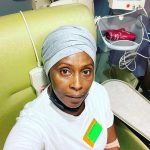 Due to Multiple Myeloma, a life-threatening disease, Darphelia wasn’t allowed to take public transport or carpool with others.
Due to Multiple Myeloma, a life-threatening disease, Darphelia wasn’t allowed to take public transport or carpool with others.
She certainly couldn’t skip a day and just stay home.
Her illness, and her doctors, had pulled her out of work a while ago. And she had already gone through her retirement savings.
Darphelia told us that this was the first time in her life with no income.
What was she to do?
—
Icla Cares worked closely with the social worker from UC San Diego Health to get Darphelia the support she needed. We removed her barrier so she could receive repeated, high-dose chemotherapy treatments and then an autologous blood stem cell transplant.
The transplant was successful.
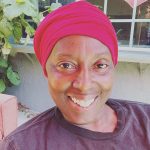 Darphelia is eating again, “eating clean” as she says. She has gained back some energy and is happy just to be able to walk around the block.
Darphelia is eating again, “eating clean” as she says. She has gained back some energy and is happy just to be able to walk around the block.
“Thank you! I can’t say how much I appreciate the help that I received. It’s difficult to judge a situation without having gone through it yourself.” – Darphelia Lowe, Multiple Myeloma Survivor
Thanks to our friends and supporters, we removed one more barrier and another patient received their transplant.
If you haven’t already, please consider making a donation to help us remove barriers to treatment for patients in need.
Your gift matters more than you know.
Thanks for reading.
Written by: Bret Itskowitch
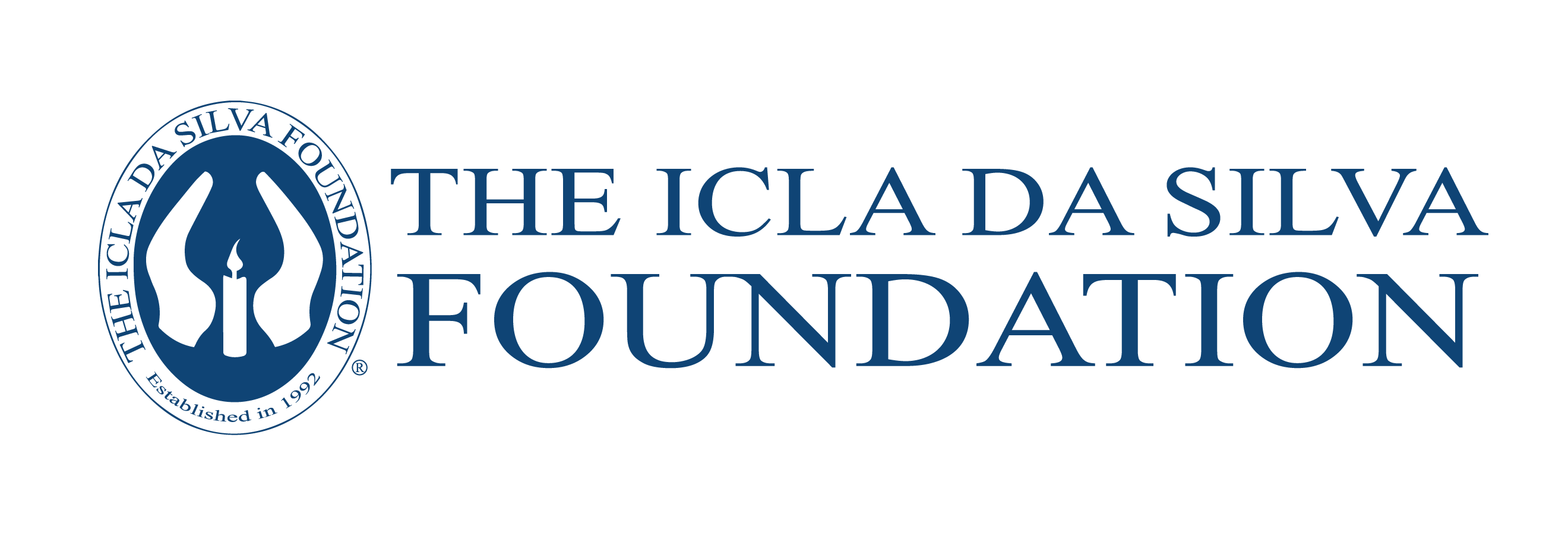
 English
English Spanish
Spanish Portuguese
Portuguese